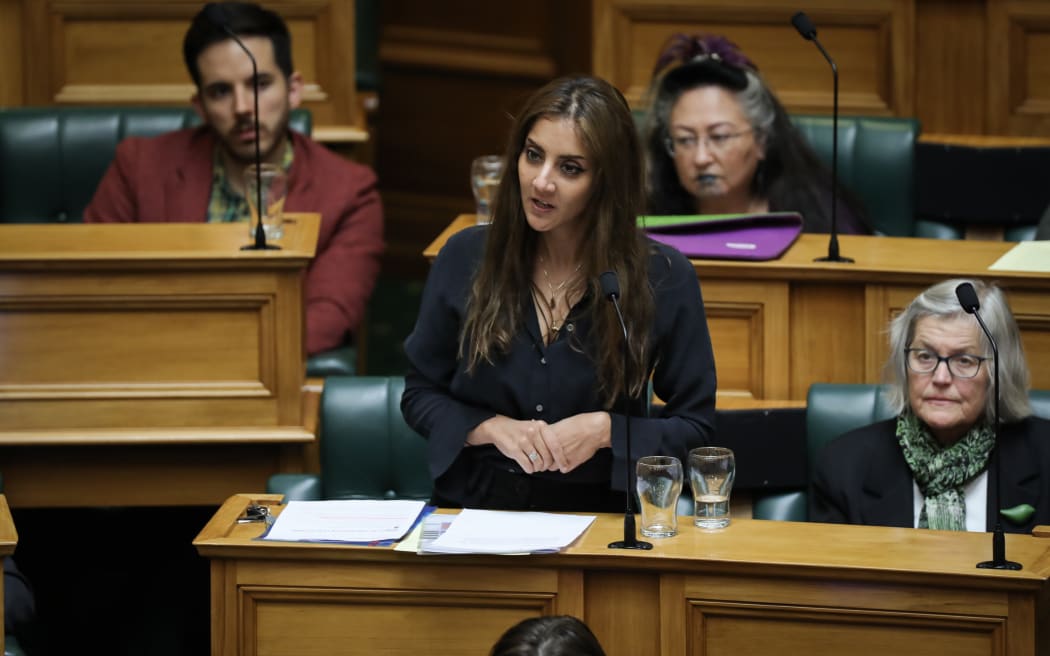This Wednesday is a Member’s Day in Parliament and - in terms of debate - will likely feature a mix of the contentious and the agreeable.
Several interesting Member’s Bills sit at the top end of the Order Paper awaiting MPs’ attention as Parliament is in catch-up mode after losing some time recently due to the death of the Queen and before that the change to a new Speaker.

Golriz Ghahraman’s Electoral (Strengthening Democracy) Amendment Bill is up for its First Reading this week. Photo: ©VNP / Phil Smith
First up is a Bill that asks the public service not to speak in excessively technical terms or meaningless jargon. Now that may not seem at first like an unreasonable request, but Opposition MPs have characterised the legislation as an attempt to exert mind control by government and claimed it will create “language police”. The Plain Language Bill in the name of Labour MP Rachel Boyack is at the Committee Stage, and it could be reasonable to expect some fillibustering from National and Act MPs who have vowed to oppose the Bill.
However, Act MPs are unlikely to want to muck around too much because interrupted debate on the First Reading of their member Damien Smith’s Overseas Investment (Exempt Investment from OECD Countries) Amendment Bill is scheduled to resume. The Bill will exempt investors from countries within the OECD from the need to receive Overseas Investment Office approval to invest here, except in respect of investments in residential land.
But before they get to that Bill, the House is scheduled to turn its attention to the Committee Stage of the Biosecurity (Information for Incoming Passengers) Amendment Bill in the name of Whanganui MP Steph Lewis. The Bill amends the Biosecurity Act 1993 to require that all craft coming to New Zealand must provide biosecurity information to the persons on board by means of an audio-visual recording and writing. Lewis has noted the “collegial approach” within the Primary Production Committee for their approach to this Bill.
Collegiality is likely to be tested by the time the First Reading of Green MP’s Golriz Ghahraman’s Electoral (Strengthening Democracy) Amendment Bill gets into its stride (if MPs manage to get this far down their agenda).
The Bill looks to enact seven areas of reform in one go, including lowering the voting age by two years to 16, allowing Māori to switch electoral roles at any time, giving all prisoners the right to vote, and lowering the party vote threshhold from 5 to 4 percent. These are reforms that the two main parties may find difficult to swallow in one go, so the chances of Ghahraman’s bill surviving fully intact aren’t necessarily great.

